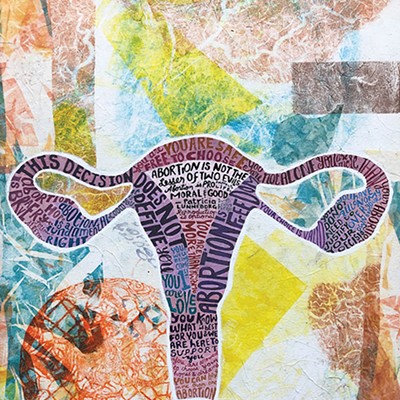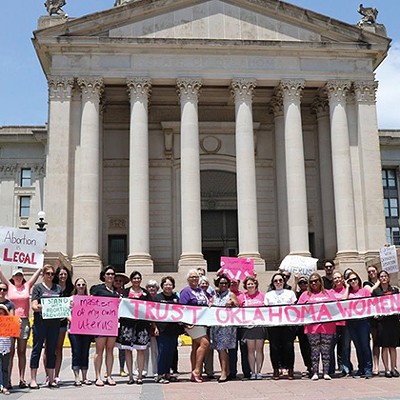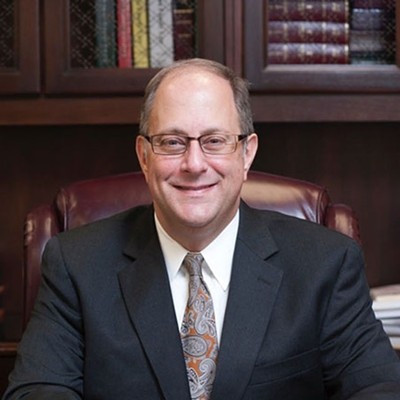A state judge last week struck down a law requiring an ultrasound be performed prior to an abortion, and the following day a suit was filed to prevent a so-called personhood measure from landing on the November ballot.
The ultrasound law, passed by the state Legislature in 2010 over the veto of then-Gov. Brad Henry, would have required any woman seeking an abortion to undergo an ultrasound procedure, view the image, and have the image described in detail, even if the woman objects.
The March 28 ruling by Oklahoma County District Court Judge Bryan Dixon stated the law was unconstitutional because it specifically targeted abortion as a medical procedure and treated it differently than other procedures.
The Center for Reproductive Rights, which filed the suit, argued that the law demeaned women and put government officials between patients and their doctor.
“The lawsuit argued the statute violated the principles of medical ethics by requiring physicians to provide unnecessary and unwanted services to patients, while patronizingly discounting a woman’s ability to make decisions about her pregnancy,” the New York-based CRR stated in a news release.
Late last week, Attorney General Scott Pruitt indicated the state will appeal Dixon’s ruling.
‘Informed decision’
Tony Lauinger, state chairman of Oklahomans for Life, said the law simply provides more information to women seeking an abortion, so that the woman has full knowledge of what the procedure will entail.
“We believe that the information that a woman can receive via ultrasound prior to an abortion is vitally important in allowing her to make a fully informed decision,” he said. “A lot of women have psychological and emotional problems in later life if they’ve had an abortion. The more information that a woman can receive … the less likely it is she will have problems later in life.”
Lauinger said the plaintiffs’ filing conceded that most abortions involve some sort of ultrasound, anyway. He said the requirement, which could involve a transvaginal ultrasound, actually empowers women seeking an abortion.
“This is not a question of an additional procedure for them. It’s simply a question of whether the screen will be turned at an angle where the woman may view images of her unborn baby,” Lauinger said. “She’s not required to look, but it would allow her to see the images of her child if she chose to do so.”
But Dr. Dana Stone, an Oklahoma City obstetrician-gynecologist, said the law mandates what previously would have been a voluntary procedure.
“As physicians, we’re always taught we do not do things without the patient’s consent and that took away the woman’s right to refuse a procedure,” she said. “It’s not something we go thorough medical school learning to do: doing things to patients against their consent.”
Stone was pleased with the court’s ruling.
“It was a law that never should have been passed in the first place. I was glad the court thought the same thing,” she said. “The Legislature was substituting their judgment for medical judgment. They’re not in a good position to do that.”
‘Adverse consequences’
Meanwhile, the battle over personhood measures — bills and laws granting an embryo all the rights and privileges of someone who has been born — is heating up in Oklahoma. The movement has allies in high places in Oklahoma government. Attorney General Pruitt last year told a crowd at the Reclaiming America for Christ conference that Christians should be fighting to have unborn fetuses declared “people,” subject to 14th Amendment protection.
This legislative session, that movement arrived in Oklahoma, with Senate Bill 1433 clearing the Senate and headed for a vote in the House.
The bill, known as the Oklahoma Personhood Act, would recognize life as beginning at conception; the unborn having protectable interests in life, health and well-being; and that all state laws and protections apply to unborn fetuses at all stages.
Personhood Oklahoma is orchestrating a concurrent effort to put the personhood issue on state ballots in November.
The ballot initiative has met a court challenge by the CRR and the American Civil Liberties Union, which contend the measure is unconstitutional and that the signature roster is misleading. Personhood Oklahoma counters that the petition is certain to pass legal muster.
Oklahoma City fertility specialist Dr. Eli Reshef, a plaintiff in the case, said such a measure would have many unintended consequences: some absurd (such as requirements that all fertilized eggs in his lab be counted as people in the census) and others more grim (such as opening up himself and others in his line of work to charges of manslaughter or murder, since a majority of fertilized eggs do not survive).
“There are adverse consequences that are so profound and have never been thought about adequately by the people who filed the bill,” Reshef said.
“Bottom line: It’s basically carrying a barrel of explosives with the fuse already lit and hoping it doesn’t explode.”











